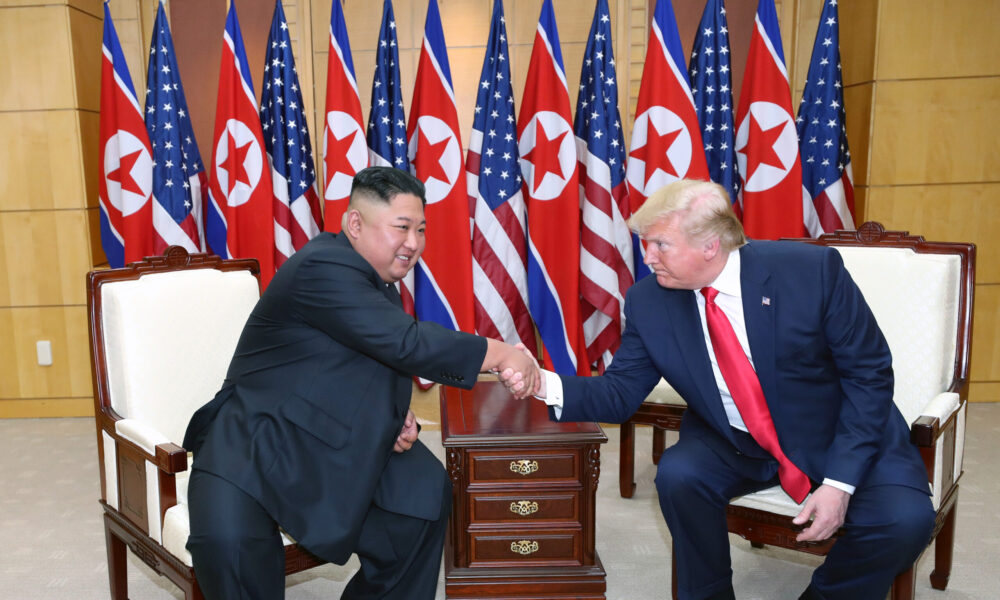Earlier this week, North Korean leader Kim Jong Un told his Supreme People’s Assembly that he is willing to talk to President Trump. South Korea’s newly elected President Lee Jae Myung indicated he can work within the terms Kim suggested. During the first Trump administration, the groundbreaking talks that brought Kim and Trump together, twice, failed to change the trajectory of US-North Korean relations. Great expectations led to extreme disappointment on both sides. Hopes for a new era gave way to acrimony and accusations of bad faith.
The heart of the problem is that North Korea is now a de facto nuclear weapons state. The US secretary of state, together with his Japanese and South Korean counterparts, responded to Kim’s overture by reiterating they are unwilling to accept that. For decades, the three governments have made the denuclearization of North Korea a prerequisite for constructive dialogue between the two sides. In his recent announcement, Kim made it clear that North Korea will remain a nuclear weapons state as long as China, Russia, and the United States remain nuclear weapons states. He’s willing to talk, but not about denuclearization.
South Korea’s president suggested talking about a “freeze” on the development of North Korea’s nuclear weapons. That will be a hard sell as long as Kim’s two nuclear-armed neighbors and the United States move forward with plans to upgrade and expand their much larger and more capable nuclear forces. There is, however, another way to discuss North Korea’s nuclear weapons program that Kim would be willing to consider.
An old idea whose time has come
A new and comprehensive assessment of the security situation in Northeast Asia described discussions about denuclearization of the region as “a weathered carriage on a viable path.” One idea that has always been a central part of those discussions, especially in Japan and South Korea, is the creation of a nuclear weapons–free zone in Northeast Asia. Most formulations imagine the zone as a combination of a denuclearized Korean peninsula and a US commitment not to deploy tactical nuclear weapons in the region. The new assessment suggests that scaling back Chinese, Russian, and US nuclear weapons programs and policies will also need to be part of any plan to establish such a zone in the region.
Doing so would take decades and require currently unimaginable compromises from all the nuclear weapons states in the region, including North Korea. But talks aimed at establishing such a zone would probably be acceptable to Kim, especially because these talks would meet his expectation that North Korea’s nuclear weapons should not be treated any differently than the nuclear weapons of China, Russia, and the United States. North Korea would be an equal partner in this discussion with shared obligations, not an object of unequal treatment or special pressure.
The bigger picture
The United States and its allies, as well as China and Russia, need a forum where they can sit down as equals, talk constructively about the risks of nuclear war, and look for ways to reduce those risks. As unrealistic as the establishment of a nuclear weapons–free zone in Northeast Asia may seem, talking about it can be a vehicle for improving security in the region by providing governments with the diplomatic cover to consider all the problems and disagreements that make them feel insecure and drive them to rely upon nuclear weapons—and threats to use them—as a coping mechanism.
We live in a rapidly changing geopolitical landscape where the established rules and norms of the post–Cold War era are dissolving quicker than we can devise new ones to take their place. It’s a transition fraught with dangers but also ripe with new possibilities. Improving relations between the United States and North Korea, between North and South Korea, and between both Koreas and Japan is a positive change within the reach of all four governments. Establishing a sustainable regional forum to explore that opportunity would be a Nobel-worthy achievement. The idea of a nuclear weapons–free zone for the region, despite being out of step with the current tenor of the times, is a viable means to that end.

